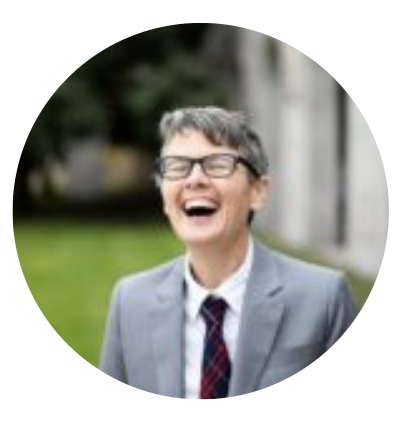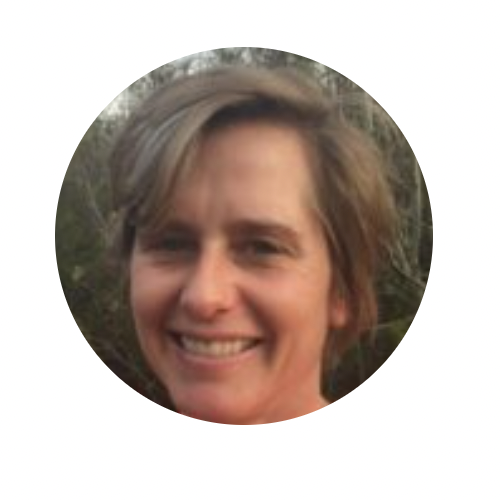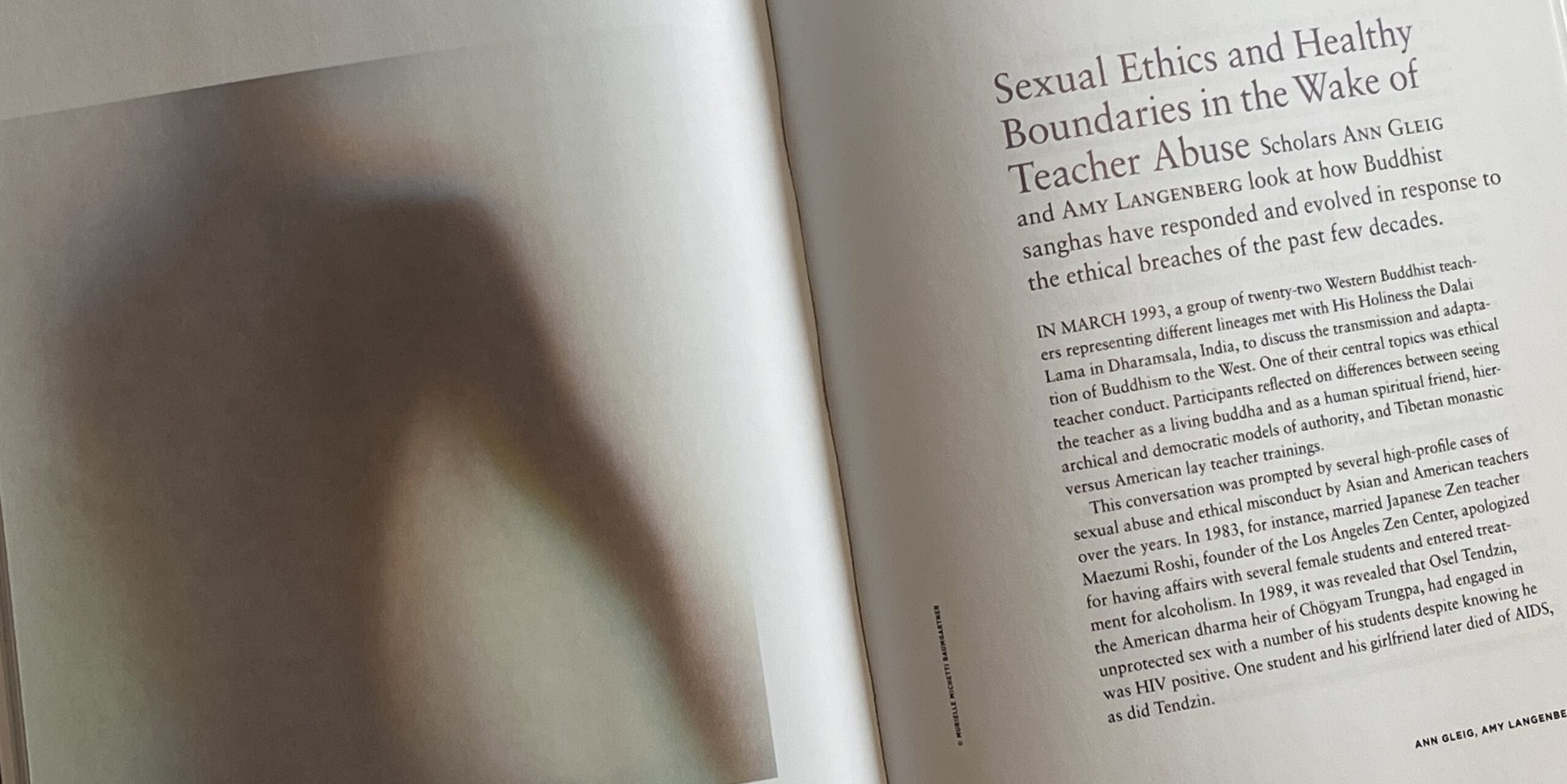An online training course designed by and for Buddhist teachers to provide education on healthy and appropriate boundaries in spiritual teacher/student relationships. The course includes a module on best practices for preventing and responding to teacher sexual misconduct.
The Shogaku Zen Institute offers a MDiv professional degree as a credential for Buddhist ministry or chaplain work. Included in the degree is a training designed to educate participants in the dynamics of power, transference, projection, and idealization that often underlie sexual misconduct.
Carol Merchasin, “Sexual Misconduct and Legal Liability Issues in Buddhist Sanghas”
Lawyer Carol Merchasin outlines the legal responsibility and liability of the boards of directors in Buddhist communities in relation to allegations of sexual misconduct.
Abuse, Sex, and the Sangha: A Series of Healing Conversations
A set of conversations that bring together Buddhist scholars, Buddhist teachers, and other related stakeholders to address different aspects of sexual misconduct and abuse cases in Buddhist communities. Topics covered include community accountability and reform, survivor voices, racism, sexual abuse, classic Buddhist sexual ethics, and legal liabilities.
Safe Harbor: Guidelines, Process, and Resources for Ethics and Conduct in Buddhist Communities
A comprehensive open-source resource produced by the Buddhist Peace Fellowship on preventing and addressing sexual misconduct and abuse, drawing on Buddhist, feminist, and legal frameworks.
Tynette Deveaux, “Commentary: Sexual Misconduct is No Joke,” Lions Roar
A list of resources curated by former Buddhadharma editor Tynette Deveaux to help survivors, their allies, and impacted community members understand and respond to sexual misconduct.
The Sangha Sutra: Zen Center Los Angeles Ethics Practice
This practice text produced by the Zen Center of Los Angeles shares how the community healed from its history of sexual misconduct and related abuses of power. This document can serve as a model of Buddhist community accountability and reform in the wake of misconduct.
Soto Zen Buddhist Association Ethics & Grievance Resources
A model of an up-to-date Ethics and Grievance policy for identifying, preventing, and responding to sexual misconduct in Buddhist organizations.
An interactive website designed to provide a safe space for students of Tibetan Buddhism to share their responses to allegations of abusive sexual behavior by the 17th Karmapa, Ogyen Trinley Dorje.
Abuse in Buddhism: Facing it, Preventing it, and Healing From it
A video series produced by the Dharmadatta community that seeks to bring light to the systemic issue of abuse by Buddhist teachers. Through interviews with survivors and advocates, the series highlights how to face and understand abuse and how to promote community accountability and justice for survivors.
Survivor-Centered Resources
Lama Willa Miller, “Breaking the Silence on Sexual Misconduct,” Lions Roar, May 19, 2018
A detailed first-person narrative by a survivor of sexual misconduct in a Tibetan Buddhist community, which includes a reflection on the role of Buddhist doctrine and offers preventative resources drawn from clergy misconduct research.
A survivor-designed and led project that documents intergenerational sexual misconduct and abuse allegations in the Shambhala Buddhist community, including a number of narratives from survivors from the Shambhala community.
Rebecca Jamieson “Woven: Leaving Shambhala,” Entropy, June 10, 2020
A first-person narrative about sexual coercion within the Shambhala community that documents the gray areas of abuse experienced by many survivors and an inadequate community response.
Heartwood: Connecting Survivors of Guru and Teacher Abuse
A peer-led group for survivors of sexual and other forms of abuse in Buddhist communities, which meets virtually every month.
The Resilient Sangha Project, Greater Boston Zen Center (GBZC)
A survivor-endorsed resource that documents one community’s experience of teacher misconduct from a survivor-centered perspective and provides a comprehensive set of survivor-centered resources on sexual misconduct.
Bhante Sujato, “The Buddha Would Have Believed You,” Lions Roar
Australian monastic Bhante Sujato discusses passages within the Vinaya, or Buddhist monastic codes that provide canonical grounds for supporting survivors of sexual abuse in Buddhism.
The Buddhist Studies scholars who authored “Sexual Ethics and Healthy Boundaries in the Wake of Teacher Abuse,” discuss the ways in which Buddhist Studies as an academic discipline has failed to address sexual abuse and how to ensure that research on the topic is survivor-centered.
Healing from Abuse: The Voice of Survivor, Ally and Activist Video Interview with Rachel Montgomery
A video conversation with Rachel Montgomery, the co-founder of the Heartwood Connecting Survivors of Guru and Teacher Abuse. She shares her first-person account of sexual abuse and recovery and offers clear and powerful insights into the dynamics of abuse in Buddhist contexts.

ANN GLEIG
Ann Gleig is an associate professor of religion and cultural studies at the University of Central Florida. She is the author of American Dharma: Buddhism Beyond Modernity and editor, with Scott Mitchell, of the forthcoming Oxford Handbook of American Buddhism. She is collaborating with Amy Langenberg on Abuse, Sex, and the Sangha, a book-length study of sexual abuse in American convert Buddhism, to be published by Yale University Press.

AMY PARIS LANGENBERG
Dr. Amy Paris Langenberg is a professor of religious studies at Eckerd College. She studies gender and sexuality in Indian Buddhism, female Buddhist monasticism, and contemporary Buddhist feminisms. She is the author of Birth in Buddhism: The Suffering Fetus and Female Freedom (Routledge).

